
Libertarianz was a political party in New Zealand that advocated libertarianism, favouring self-government and limiting the power of the government over the individual. Ayn Rand's philosophy of Objectivism was a major influence on the party. Its slogan "More Freedom, Less Government" is indicative of the party's basic policy platform. It went into recess and was de-registered by its own request in 29 January 2014.

Dame Annette Faye King is a former New Zealand politician. She served as Deputy Leader of the New Zealand Labour Party and Deputy Leader of the Opposition from 2008 to 2011, and from 2014 until 1 March 2017. She was a Cabinet Minister in the Fourth and Fifth Labour Governments, and was the MP for the Rongotai electorate in Wellington from 1996 to 2017.

David Richard Cunliffe is a New Zealand management consultant and former politician who was Leader of the New Zealand Labour Party and Leader of the Opposition from September 2013 to September 2014. He was Member of Parliament (MP) for Titirangi and then New Lynn for the Labour Party between 1999 and 2017. He served as the Minister of Health, Minister for Communications and Information Technology and Minister of Immigration for the Fifth Labour Government of New Zealand from October 2007 until November 2008.

David William Parker is a New Zealand Labour Party politician who served as Attorney-General, Minister for the Environment, Minister of Transport and Associate Minister of Finance in the Sixth Labour Government. He previously served as a Cabinet Minister in the Fifth Labour Government, Deputy Leader of the New Zealand Labour Party and Deputy Leader of the Opposition from September 2013 to September 2014, and as interim Leader of the Labour Party from September to November 2014. He represented the Otago electorate at the 47th Parliament and has since served as a list MP.
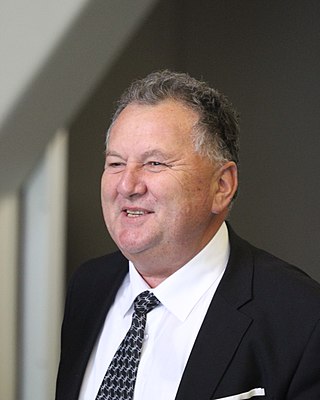
Shane Geoffrey Jones is a New Zealand politician and a member of the New Zealand House of Representatives for the New Zealand First party.
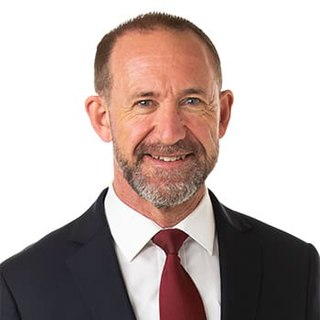
Andrew James Little is a New Zealand lawyer, former politician and former trade union official. He was Leader of the Labour Party and Leader of the Opposition from 2014 to 2017 and a senior minister in the Labour governments led by Jacinda Ardern and Chris Hipkins from 2017 to 2023, including as Minister for Treaty of Waitangi Negotiations, Minister of Justice, Minister of Health and Minister of Defence.

Grant Murray Robertson is a retired New Zealand politician and member of the Labour Party who served as the Minister of Finance from 2017 to 2023, as Minister of Foreign Affairs in November 2023, and as the 19th Deputy Prime Minister of New Zealand from 2020 to 2023. He was the member of Parliament (MP) for Wellington Central from 2008 to 2023.

Simon Joseph Bridges is a former New Zealand politician and lawyer. He served as Leader of the National Party and Leader of the Opposition between 2018 and 2020, and as the Member of Parliament for Tauranga from the 2008 election to May 2022, when he resigned.

The 2011 New Zealand general election took place on Saturday 26 November 2011 to determine the membership of the 50th New Zealand Parliament.

The 2009 Mount Albert by-election was held in the New Zealand electorate of Mount Albert on 13 June 2009. There were fifteen candidates in the election. David Shearer of the Labour Party won the election with 63% of the vote. The seat was vacated by former Labour Prime Minister Helen Clark, who resigned from the New Zealand Parliament on 17 April 2009 following her appointment to head the United Nations Development Programme. Main issues surrounding the campaign included the building of the Waterview Connection and the Auckland Region becoming a supercity.

David James Shearer is a New Zealand United Nations worker and politician. He was a member of the New Zealand Parliament for the Labour Party from 2009 to 2016, serving as Leader of the Opposition from 2011 to 2013.

The 2014 New Zealand general election took place on Saturday 20 September 2014 to determine the membership of the 51st New Zealand Parliament.

New Conservatives is a conservative political party in New Zealand. Some opponents and observers have described the party's policies as far-right, though the party now states it has moved to a "more centrist" position under new leadership. It advocates for lower taxation, anti-abortion measures and austerity cuts.
Opinion polling for the 2014 New Zealand general election has been commissioned throughout the duration of the 50th New Zealand Parliament by various organisations. The five main polling organisations are Fairfax Media, MediaWorks New Zealand, The New Zealand Herald, Roy Morgan Research, and Television New Zealand. The sample size, margin of error and confidence interval of each poll varies by organisation and date.
The 2011 New Zealand Labour Party leadership election was held on 13 December 2011 to choose the thirteenth Leader of the New Zealand Labour Party. A Deputy Leader and a senior and a junior whip were also elected. Following the Labour Party's loss in the 2011 general election, leader Phil Goff and deputy leader Annette King resigned, prompting the leadership election, which was conducted as a secret ballot of the Labour caucus.

A by-election was held in the New Zealand electorate of Ikaroa-Rāwhiti on 29 June 2013. The seat was vacated by the death of incumbent member of parliament Parekura Horomia two months earlier, who had represented the electorate for the Labour Party since its inception for the 1999 election. The election was won by Labour's Meka Whaitiri.
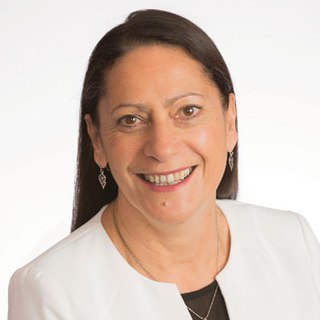
Munokoa Poto Williams is a New Zealand Labour Party politician and a member of Parliament. She was elected in a 2013 by-election and served as Minister of Conservation and Minister for Disability Issues in the Sixth Labour Government.
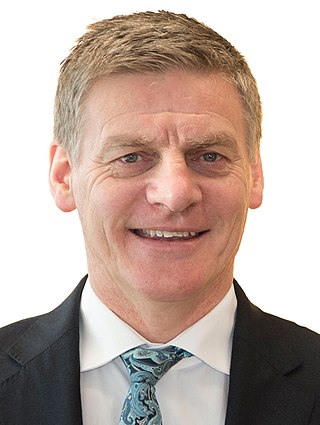
The 2017 New Zealand general election took place on Saturday 23 September 2017 to determine the membership of the 52nd New Zealand Parliament. The previous parliament was elected on 20 September 2014 and was officially dissolved on 22 August 2017. Voters elected 120 members to the House of Representatives under New Zealand's mixed-member proportional (MMP) voting system, a proportional representation system in which 71 members were elected from single-member electorates and 49 members were elected from closed party lists. Around 3.57 million people were registered to vote in the election, with 2.63 million (79.8%) turning out. Advance voting proved popular, with 1.24 million votes cast before election day, more than the previous two elections combined.

The 2014 New Zealand Labour Party leadership election was held to choose the Leader of the Labour Party. Andrew Little won the election and became leader of the party.
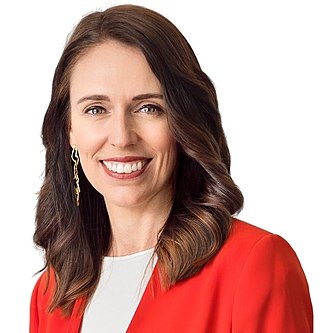
The 2020 New Zealand general election was held on Saturday 17 October 2020 to determine the composition of the 53rd New Zealand Parliament. Voters elected 120 members to the House of Representatives, 72 from single-member electorates and 48 from closed party lists. Two referendums, one on the personal use of cannabis and one on euthanasia, were also held on the same day. Official results of the election and referendums were released on 6 November.




















